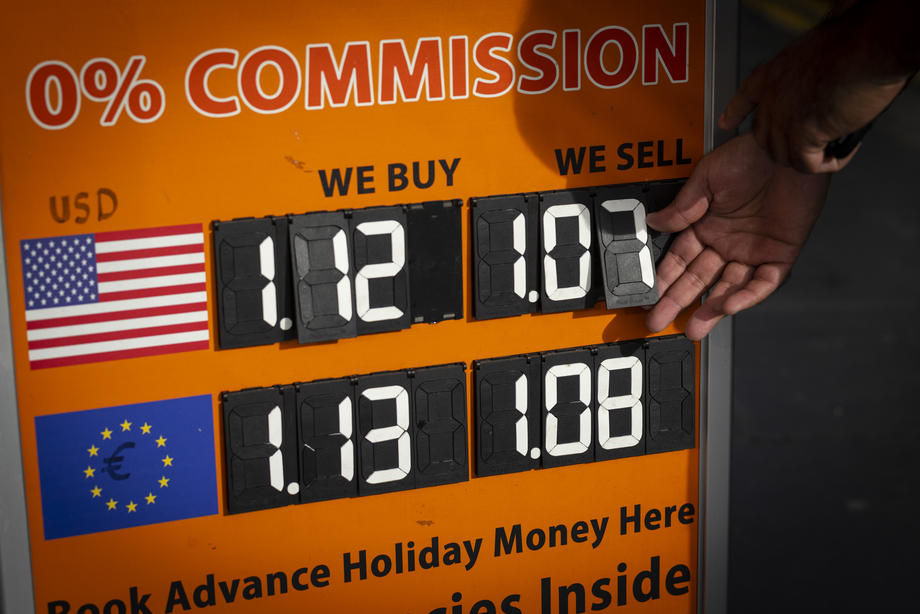Why did the pound begin to "sink"?
The financial collapse of Great Britain has "scared" investors. That could lead to a broader, new assessment of the value of the pound
The new British economy minister, Kwasi Kwarteng, is facing huge problems in his first month in office. He repeatedly insists that "the market will react as it should" and that there is no need to panic. The fall of the pound is the most current topic that the island's media are preoccupied with these days.
"BloombergHe learned that Kwarteng will hold a meeting with top British financiers today, in an attempt to stabilize the situation with the pound.
Britain on September 23 announced its biggest tax cuts in 50 years, prompting a fall in the powerful British currency against the US dollar.
The decline came as a result of the early sell-off, following Minister Kwarteng's announcement, according to the British newspaper "Economist". Later on Friday, the pound pared losses, rising to around $1,08. The price of that recovery was rising expectations for higher interest rates. In the past, the currency's low was reached on February 26, 1985, at $1,042.
Just published: front page of the Financial Times, UK edition, Tuesday 27 September https://t.co/fEOHVUzmlq pic.twitter.com/04u6OHaPee
- Financial Times (@FinancialTimes) September 26, 2022
This year, as in 1985, the fall of the pound is mainly an indicator of the strengthening of the dollar, the British weekly thinks.
Today's front page of the popular British newspaper The Guardian read: "Pound Crisis Continues, Truss Politics Unfold."
Guardian front page, Tuesday 27 September 2022: Sterling crisis deepens as Truss's strategy unravels pic.twitter.com/GhKPgon1w9
- The Guardian (@guardian) September 26, 2022
According to "The Guardian", the economy ministry is struggling to prevent a complete loss of financial market confidence in its economic strategy, after the Bank of England's decision to rule out an extraordinary rise in interest rates prompted a fresh sell-off in the pound.
The pound is down around 20% against the greenback in 2022 and just under 15% against the euro and in line with the Japanese yen's decline.
But in the past week the pound has fallen against most currencies, not just the dollar. That decline was accompanied by a rise in government bond yields, something that would normally encourage international investors to buy sterling-denominated assets in anticipation of stronger yields.
Tuesday's Times: Bank vows to step in after day of turmoil #TomorrowsPapersToday #TheTimes #Times pic.twitter.com/IbfayQDud3
— Tomorrows Papers Today (@TomorrowsPapers) September 26, 2022
According to The Economist, Britain is facing a "currency crisis". Their exchange rate is flexible, meaning it is not pegged to other currencies, as was the case when Britain was forced out of the European Exchange Rate Mechanism in 1992. Its financial markets are deep and sophisticated. It has minimal debt denominated in foreign currencies, and its central bank is independent of the government.
The simplest explanation for the crisis, then, is that investors do not believe that the government's tax cuts will lead to the real economic growth that Kvarteng and Trass want.
Instead, they predict higher inflation that the Bank of England will not be willing to fully offset by raising interest rates.
Analysts at Bank of America suggest that a combination of Britain's changing fiscal stance and the long-term effects of its decision to leave the European Union have led to a deep reassessment of the pound by investors. That makes the currency more vulnerable in the years ahead.




